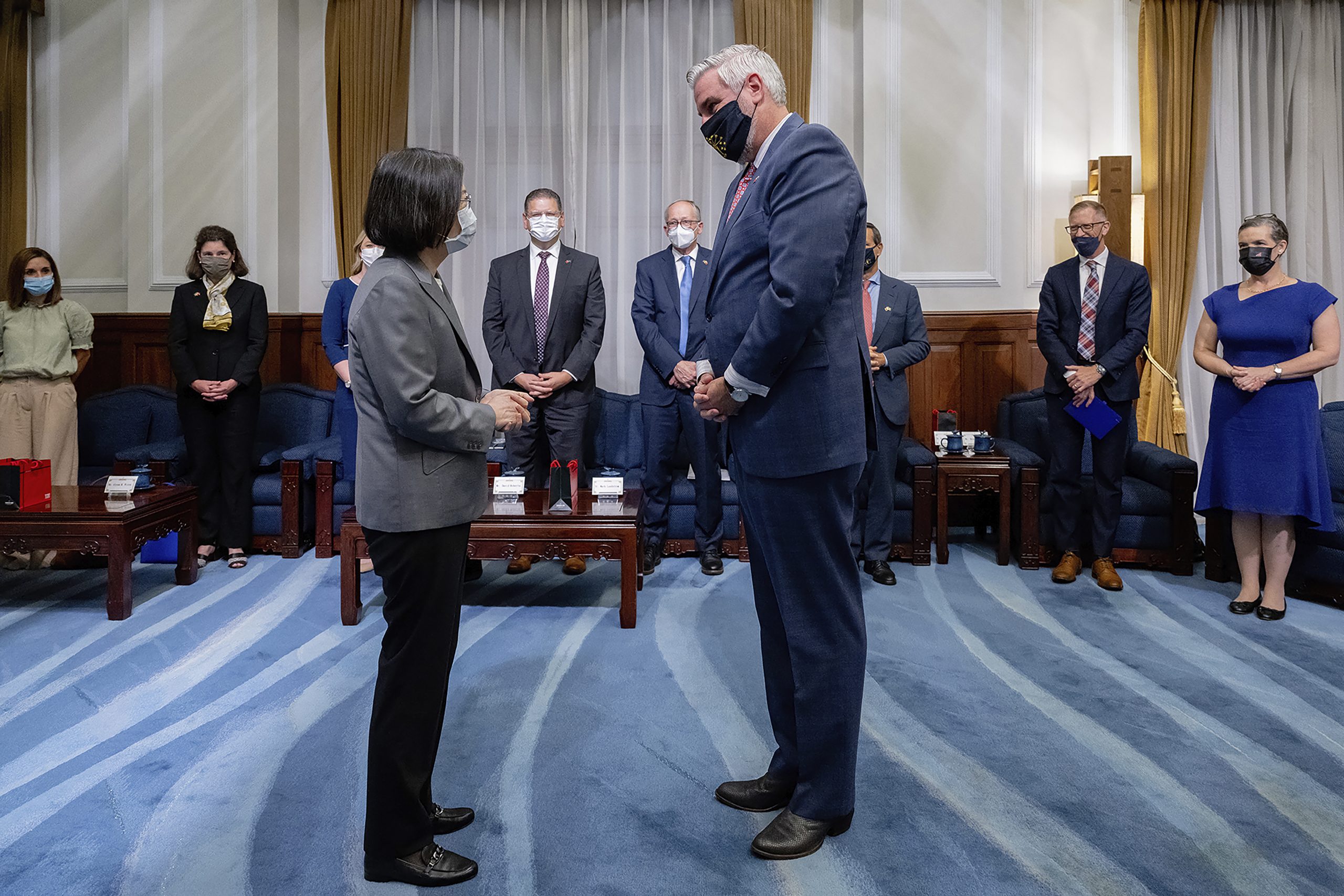Indiana Gov. Eric Holcomb led the latest United States delegation to Taiwan on Sunday amid heightened tensions between the U.S. and China following a brief visit to the island by House Speaker Nancy Pelosi (D-CA) earlier this month.
The governor is leading state and Purdue University officials in a four-day trip to Asia, which includes two days in Taiwan and two days in South Korea. The trip follows a recent agreement between Purdue University and the Taiwan-based MediaTek to build a new semiconductor design center, according to a news release.
BIDEN TESTS US-CHINA RELATIONS WITH TAIWAN TRADE TALKS

“I couldn’t be more energized to spend this week building new relationships, reinforcing long time ones and strengthening key sector partnerships with Taiwan and South Korea,” Holcomb said in a statement. “This week marks my second trip to South Korea as Governor, and I am also proud to be the first U.S. governor to visit Taiwan since before the COVID-19 pandemic. I’m committed to building an economy of the future with these global partners who are helping propel Indiana forward by creating tomorrow’s businesses, today.”
Holcomb’s delegation will meet with Taiwanese officials to strengthen economic and academic ties.
The semiconductor industry has been the focus of U.S. lawmakers, prompting Congress to pass the bipartisan CHIPS Act, which will make the U.S. more competitive with China in technology development. Semiconductors are crucial for constructing electronics, but factories have struggled to keep up with market demand. The CHIPS Act provides $52 billion to semiconductor factories and billions more to fund innovation, research, and technological developments in the U.S.
The bill was signed into law by President Joe Biden earlier this month.
CLICK HERE TO READ MORE FROM THE WASHINGTON EXAMINER
Holcomb is the latest U.S. leader to visit the island nation, following a trip of five U.S. lawmakers and a separate trip from Pelosi earlier this month. Pelosi’s visit made her the highest-ranking U.S. official to grace the island in 25 years. China, which considers Taiwan a part of its country, responded to both visits by U.S. lawmakers by conducting military drills in the Taiwan Strait.
The U.S. acknowledges Beijing’s ownership of Taiwan under the “One China” policy but also vows to honor the Taiwan Relations Act, which commits the U.S. to help the island defend itself if China invades.

